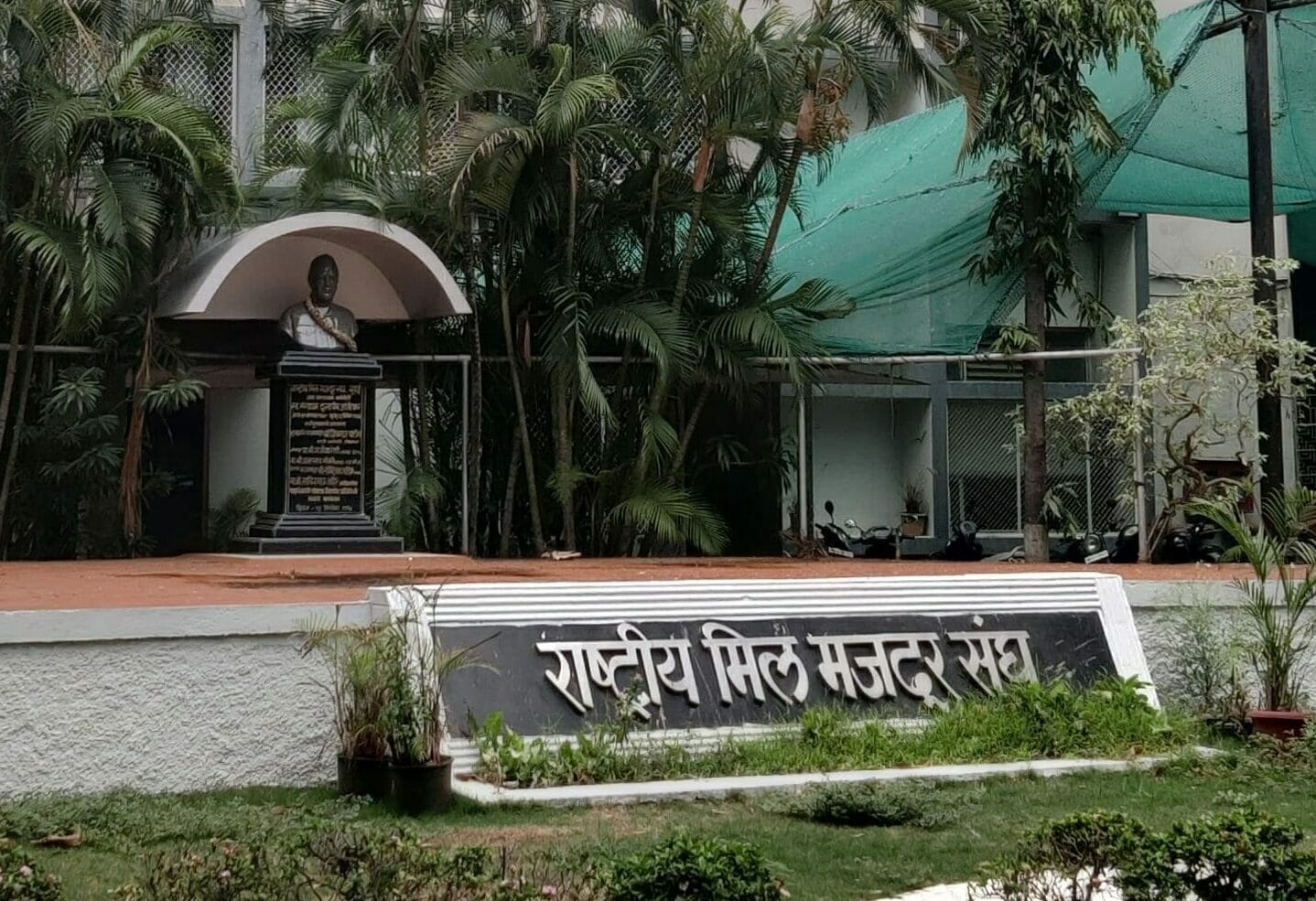For the past three years, Anjana’s family of seven has had only one earning member. Anjana and her father, both workers at India United No. 5, a National Textile Corporation (NTC) mill in Mumbai, have been without work ever since the mills closed down during the COVID pandemic. Her brother works at a vegetable store. Expectedly, the income is not sufficient to run the household.
“I dropped out after class 9 and started working at the mill in 2019 because the family needed more income. Once COVID happened, the mill closed down. We got full salaries for two to three months and later they reduced it to 50%,” she says.
“Surviving through the pandemic was difficult,” says Bijay Sharma, Anjana’s father. “We had to withdraw our PF money and even take loans from the company (the mill they work in) and elsewhere to fulfil our daily needs.”
Making ends meet with partial salaries
Although they are entitled to the 50% of the salary from the company, after deducting the loan amount, they receive less than Rs 2000. Since Anjana is not educated and her father is old now, she says, they are not getting jobs elsewhere. “We have no money left, not even to repay our loans. We are only hoping that the company reopens, and we start getting our full salaries,” she says.
This is the condition of most mill workers in Mumbai, say the trade union leaders of Rashtriya Mill Mazdoor Sangh. All the NTC mills in India including four mills in Mumbai – Tata Mills, Podar Mills, India United Number 5 and Digvijay Textile Mill – closed down after COVID and have not reopened yet.
The production in these mills has completely stopped. Fewer than 10% of workers are called to work for maintenance and any other minor work. For example, at India United No. 5, out of the 550 workers, only about 20 to 25 employees are called and are given their full salaries. The rest are at home, getting their “50% salaries,” while they continue to wait for the mills to open.
The Economic Survey of Maharashtra shows that the rate of unemployment in Maharashtra’s urban areas has increased from 4.4 % in 2019-20 to 6.5 % in 2020-21. That means, unemployment has increased drastically post COVID.
Read more: Hidden, unsung, Mumbai’s piece rate workers toil away for meagre returns
Children’s education at stake
Workers told Citizen Matters that many children have dropped out from schools to do odd jobs and contribute to household income. Smita, another worker at the same mill says, “We are not getting proper salaries, so it is not possible for us to educate our children further. If children want to do engineering, we have to pay a lot for that, which we cannot afford.”
Anjana’s sister Sanjana too had to drop out of school due to lack of funds. She tried taking a course to become a beautician so that she could work at a parlour. However, she had to discontinue that too because she could not afford to pay the fees.
Anjana says that children drop out from schools to help the family, but when such things happen (that is, closure of mills) and there is no income at all, they are in a bad spot. Neither do they get jobs elsewhere due to lack of education, nor can they continue to study due to lack of funds. She spoke about how children feel frustrated and helpless and how it is bound to impact their future.
Trade union’s role
Workers depend on unions like the Rashtriya Mill Mazdoor Sangh (RMMS) for assistance for families and negotiations for payments. Mill worker Ganesh says, “We did not get any payment for the last six months. We held a protest march on behalf of the union (RMMS). Then the company paid us our salaries.”
Rashtriya Mill Mazdoor Sangh (RMMS), a mill workers’ union in Mumbai, is working with workers of these mills. “The public sector industries are there to give guaranteed employment to workers. But this government is least bothered about them. They say running businesses is not our job. We have been pressuring the government to restart the mills; we have even approached courts, but in vain,” says Raghunath Shirsekar, Vice President, RMMS.

What does the NTC say?
K C Pawar, an official from the human resources department of the NTC, says nothing is in their hands. “The funds come from Delhi. We can only give how much we get from the government. We don’t even know if the mills are going to reopen. We only do what the government says.”
“The mills are under loss, and it will take crores of rupees to restart production. There is little hope left that the government would restart these mills”, says Zoab Peer Khan, Finance Head, India United No. 5.
With jobs hard to come by and prices rising by day, the only hope for these families like that of Anjana is to somehow get the old job back. Whether that will happen is not known and families continue to worry about everyday survival and future of their children.